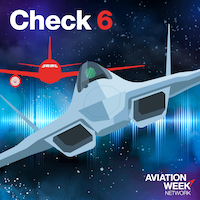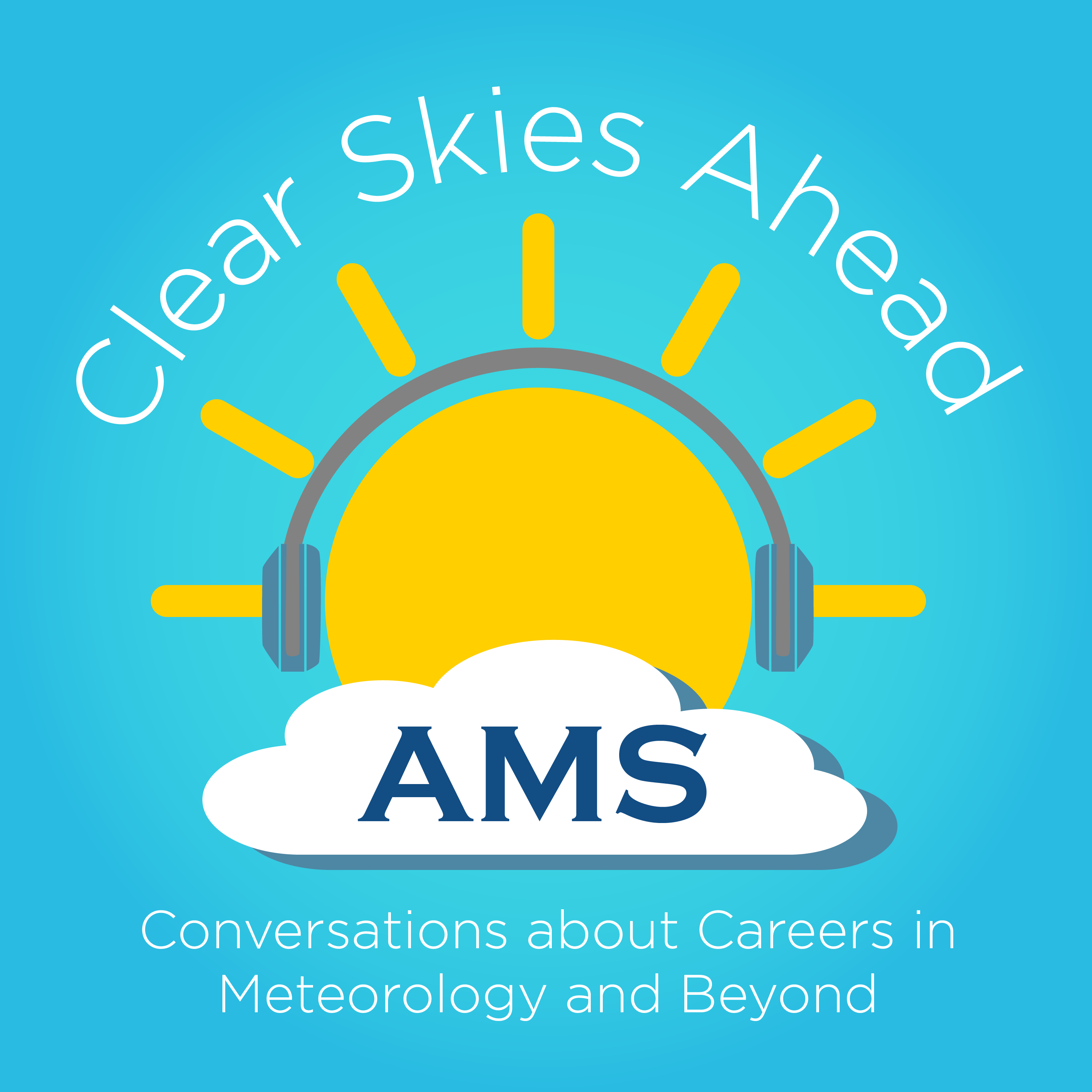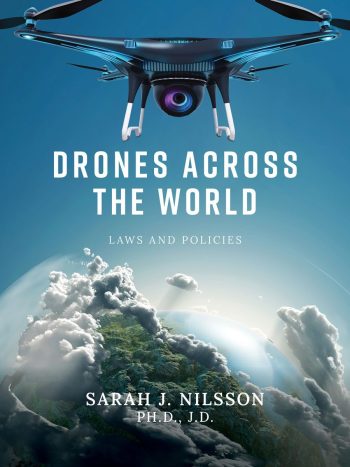Careers in Aeronautics
A career in aviation offers a diverse range of opportunities to explore the fascinating world of flight. Whether you're drawn to the thrill of piloting aircraft, the intricacies of air traffic control, or the cutting-edge technology of unmanned aerial systems (UAS), aviation offers several opportunities for your career aspirations.
Consider exploring these specialized fields through the degree programs offered at Embry-Riddle:
- Aeronautical Science: Embark on a career as a pilot, flying passengers and/or cargo across the globe.
- Air Traffic Control: Guide aircraft safely through the skies, ensuring the smooth flow of air traffic.
- Uncrewed Aircraft Systems (UAS): Pioneer the future of aviation by operating drones for various applications, from aerial photography to delivery services.
- Aviation Safety: Contribute to the safety and security of the aviation industry by working in areas like accident investigation, risk management, and regulatory compliance.
- Meteorology: Study the science of weather and its impact on aviation, including forecasting, climate analysis, and aviation weather consulting.
To excel in these fields, you'll need a strong foundation in aviation theory, practical flight experience, and technical skills. Additionally, developing excellent communication, problem-solving, and decision-making abilities will be crucial.
Explore this guide to learn more about the specific steps you can take to achieve your aviation career goals. Schedule a meeting with a Career Advisor to get information tailored to your individual needs and interests.
Recommended Job Boards
- JSfirmSpecifically for aviation related careers. Recommended by the Center for Career & Professional Development.
- Aviation Job Postings (AOPA)Aircraft Owners and Pilots Association (AOPA) job board for pilots, mechanics, and other aviation professionals. In partnership with JSFirm.
- AIAA Career CenterAmerican Institute of Aeronautics and Astronautics (AIAA) job board for full-time job openings and internships in aerospace
- American Meteorological SocietyAmerican Meteorological Society's (AMS) Career Center that provides job listings for positions related to meteorology.
Company Specific Job Boards
When job searching, it is always recommended to also search for your desired company's career page, as this will usually be the most up to date place for positions open compared to more general job boards. You can search "[Company name] Jobs" or "[Company name] Careers" to find them on your own. The following is not an exhaustive list but provides examples of what company career pages/job boards may look like.
Pathways Programs for Aeronautics
The Center of Career & Professional Development works with airlines and aeronautics-related companies to provide internship and job opportunities for students. To get specific information related to your past experiences and work history, schedule an appointment with a Career Advisor. Pathways program opportunities will be announced by the Center for Career & Professional development upon availability, and it is highly recommended to create a Handshake account to stay up to date on current information available.
For Pilots, it is important to be aware of the Airline Transport Pilot (ATP) certification requirements and differences between ATP (unrestricted) and R-ATP (restricted) ratings.
Unrestricted ATP
- Requirements:
- Minimum age of 23 years old
- 1,500 total flight hours, including:
- 500 hours cross-country time
- 100 hours night time
- 75 hours instrument time
- 250 hours PIC time (including 25 hours night PIC and 100 hours cross-country PIC)
- 50 hours multi-engine time (25 hours in a simulator can be credited)
- Successful completion of an Airline Transport Pilot Certification Training Program (ATP-CTP)
Restricted ATP (R-ATP)
An R-ATP certificate allows you to start flying for an airline sooner but with certain restrictions. It can be obtained through various pathways:
- Military Experience: Military pilots can obtain an R-ATP with 750 flight hours.
- Aviation Degree: Graduates from aviation degree programs can obtain an R-ATP with reduced flight hour requirements:
- Bachelor's degree: 1,000 hours
- Associate's degree: 1,250 hours
- Reduced Flight Hour Requirements: Specific flight hour requirements, such as night time and cross-country time, can be reduced under certain conditions.
Once the specific hour requirements and age requirements are met, an R-ATP holder can upgrade to an unrestricted ATP certificate.
Note: The ATP-CTP is a mandatory training program that must be completed before obtaining an ATP certificate. While it may not directly prepare you for the practical exam, it is a required step in the process.
Books about Jobs in Aeronautics
How to Succeed in the Agricultural Aerial Aviation Business by
Call Number: Z5074.A4M33 2023ISBN: 9798822918580Publication Date: 2023-07-11
Specific Application Requirements for Aeronautics
Here are some specific requirements that can be expected when applying for jobs in Aeronautics. For more specific information or information catered to your experiences, please reach out to a Career Advisor.
- Pilot
- License or Certificates
- Commercial Pilot License (CPL)
- Required for commercial flying. FAA Requires 250 total hours but airlines usually use their own minimum standard (around 1,500 hours minimum)
- Airline Transport Pilot (ATP) Certificate
- Requires a minimum of 1,500 hours of flight time.
- Flight Instructor Certificates
- Certificated Flight Instructor (CFI)
- Certified Flight Instructor – Instrument (CFII)
- Multi-Engine Instructor (MEI)
- Commercial Pilot License (CPL)
- Instrument Rating (IR)
- Medical Certificate
- Regular medical exams to ensure fitness to fly.
- License or Certificates
- Air Traffic Controller
- FAA Air Traffic Controller Certificate
- Strict Physical and Mental Requirements
- Regular medical exams and psychological evaluations.
- Aircraft Mechanic
- FAA Airframe and Powerplant (A&P) Certificate
- Aviation Safety Inspector
- FAA Certification
- Strong understanding of aviation regulations and standards.
- UAS Pilot
- FAA Remote Pilot Certificate (Part 107)
- Required for commercial drone operations.
- GIS Certification or Knowledge
- Not required but can be helpful
- Knowledge of airspace regulations and safety procedures.
- See Drones Across the World by Sarah Nilsson in the "Books" box below to get familiar if you aren’t already!
- FAA Remote Pilot Certificate (Part 107)
- Meteorology
- Advanced Degrees
- For specialized roles or research positions, a Master's or Ph.D. degree may be necessary.
- Certifications
- Consider obtaining certifications like the Certified Broadcast Meteorologist (CBM) or Certified Consulting Meteorologist (CCM) to enhance your credentials.
- Computer Skills
- Knowledge of programming languages (e.g., Python, MATLAB) and data analysis tools (e.g., R, GIS) is valuable.
- Advanced Degrees
- In General
- Security Clearance
- For certain positions, especially those involving defense and security, security clearance may be required. This involves a background check and can take several months to obtain.
- Security Clearance
- Applying for FAA JobsThe Federal Aviation Administration (FAA) provides information on how to apply for jobs with their organization through USAJOBS.GOV
- Aviation Interview Preparation HelpThis website is specifically for pilot and first officer related job interview preparation. Basic level access to the website is free.
Podcasts about Aeronautics
- Check 6
 Aviation Week & Space Technology editors take a look at some of the issues in the world of aeronautics, aerospace, and defense
Aviation Week & Space Technology editors take a look at some of the issues in the world of aeronautics, aerospace, and defense - Clear Skies Ahead
 Clear Skies Ahead: Conversations about Careers in Meteorology and Beyond is a podcast series produced by the American Meteorological Society (AMS)
Clear Skies Ahead: Conversations about Careers in Meteorology and Beyond is a podcast series produced by the American Meteorological Society (AMS)
What to Expect While Applying
The application process for aeronautics jobs can vary widely depending on the specific position, company, and industry sector. The information below provides a general idea of the application process, but variations can be expected in your job search.
Application Process:
- Applying Online
- While you should be checking general and company-specific job boards online, LinkedIn can be a handy tool to network with ERAU Alumni already working in the specific industry/company you are interested in. It may not hurt to reach out and see if they know of any job postings currently open or going to be available in the future. Having a connection to the place you are hiring can help you secure a job offer.
- Technical Assessments
- Some positions may require technical assessments, such as coding challenges or engineering simulations.
- Interviews
- Multiple rounds of interviews are common, including technical, behavioral, and managerial interviews.
- Dress conservatively for your interviews.
- It is better to look professional than under-dressed or out of place. Know the company you are applying for and assess how your interviewers are dressed for future interview rounds. While some industries may be more lackadaisical with acceptable work wear, make sure you are dressing appropriately for the work culture you are wanting to be a part of.
Timeline:
- Initial Response
- The time it takes to hear back after submitting an application can vary from a few days to several weeks.
- Interview Process
- Once selected for an interview, the process may take a few weeks to a few months, depending on the complexity of the role and the company's hiring cycle.
- Offer and Onboarding
- If you receive an offer, the onboarding process can take a few weeks to several months, depending on the specific role and company policies.
Nontraditional Careers in Aeronautics
While traditional aviation careers like pilot, air traffic controller, and aerospace engineer are well-known, there are many nontraditional pathways for students studying the various aviation-related degree programs offered at ERAU. With creativity and a willingness to explore new opportunities, it is possible to find fulfilling and rewarding careers in a variety of industries. Here are some examples:
Aeronautical Science, Applied Aviation Science, and Aviation Safety Science
- Aviation Safety Consultant
- Aviation Insurance Underwriter
- Aviation Lawyer
- Aviation Educator (Flight Instruction)
- Aviation Journalist or Writer
- Aviation Business Analyst
- Airport Manager
- Charter Pilot
- Military or Government Pilot
- I.E. Firefighting
- Aerial Survey Pilot
- Agricultural Pilot
- Flight Instructor
- Test Pilot
- Air Ambulance Pilot
- Ferry Pilot
- Banner Towing Pilot
- Seaplane Pilot
Air Traffic Management and Meteorology
- Weather Forecaster
- Climate or Weather Scientist
- Environmental Consultant
- Air Traffic Control Simulator Instructor
- Air Traffic Management Analyst
Uncrewed Aircraft Systems (UAS)
- Drone Technician
- Drone Software Developer
- Drone Instructor
- Drone Pilot
- Drone Surveyor
Still Feel Lost? Contact a Career Development Advisor!

Make an appointment on Handshake
Call the Center for Career & Professional Development
(928-777-6600)
Email a Career Development Advisor

